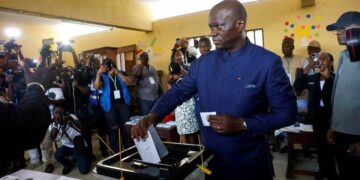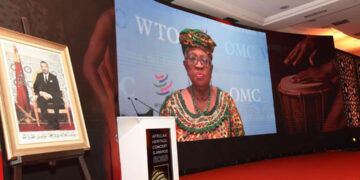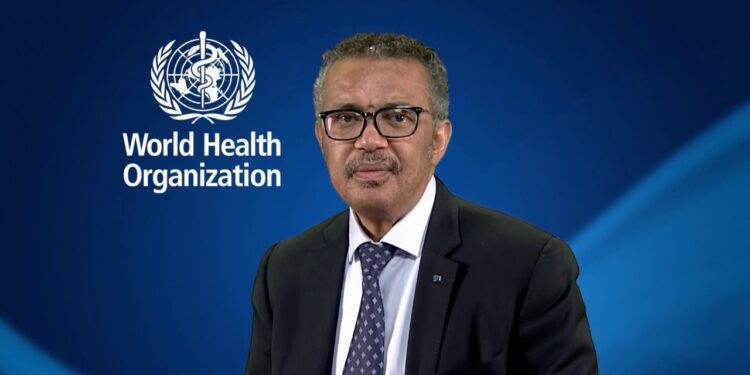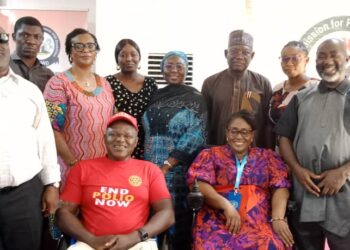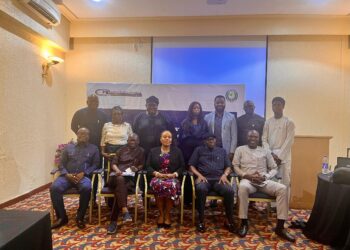Ebi Kesiena reports that despite the World Health Organization, urging nations across the world to be at alert over the possible outbreak of disease deadlier than coronavirus, a recently published survey conducted by research, data company NOIPolls reveals that Nigeria has one of the highest malaria burdens in the world.
Giving this stern warning on Tuesday while addressing the World Health Assembly forum in Geneva, Switzerland, head of WHO, Dr Tedros Adhanom Ghebreyesus stated that the threat of another public health crisis could not be kicked ‘down the road’.
According to him, the threat of another pathogen emerging with even deadlier potential remains. WHO had in 2018 identified nine priority diseases that pose the biggest risk to public health.
One will begin to imagine that Nigeria is faced with an enemy next door in Malaria that has against all odds continue to challenge its people both old and young. The giant in the room as revealed by NOIPOlls public opinion indicates that the burden of Malaria control seems to be a mirage.
Yes, most Nigerians are very widely travelled and are always affected by every global event, from health to fashion, food, culture, government at various levels have an obligation to ensure that the incidence of malaria illnesses is brought to its barest minimum as this has remained in our homes as an uninvited guest.
With the incoming administration a few days away from assuming leadership of the country, let’s dive into NOIPolls recent survey that gives more credence to the urgent call for government intervention in the fight against Malaria.
World Malaria Day, WMD, is observed April 25th every year. The day is aimed to spread awareness about malaria disease, take urgent action in the control of the deadly disease, and promote efforts to prevent malaria. In commemoration of World Malaria Day, NOIPolls conducted a new public opinion poll on Malaria disease.
The poll result revealed that slightly more than 9 in 10 Nigerians (91 percent) think that malaria is one of the most worrisome health challenges in the country. This assertion cuts across gender, geographical locations, and age groups with at least 87 percent representation.
A total of 1,090 respondents were randomly selected for this survey. The survey was administered over the telephone in five languages, using a well-structured questionnaire. The demographic distribution of the respondents was analyzed by the following groups: gender, age group, geo-political zones, and occupation.
Did you know that according to the 2021 World Malaria Report, Nigeria had the highest number of global malaria cases and the highest number of deaths 32% of global malaria deaths, in 2020. In addition, Nigeria accounted for an estimated 55.2% of malaria cases in West Africa in 2020.
With regards to the malaria burden in the country, the poll has quantified just how pervasive malaria disease is, with as many as 71 percent of Nigerians revealing they had treated malaria in the past three months. To further corroborate this finding, the World Malaria Report revealed that cases of malaria in Nigeria have increased to 5.3% between 2017 and 2020, from 298 to 314 per 1000 of the population at risk. Deaths increased by 4.7%, from 0.92 to 0.97 per 1000 of the population at risk during that same period.3
Furthermore, respondents were asked what they do when they have symptoms of malaria and the poll findings showed that 41 percent of respondents go to the hospital for treatment, 22 percent said they go to a chemist and 21 percent visit a pharmacy when they develop symptoms of malaria.
Paying close attention to this, 11 percent of the respondents disclosed that they take herbs to cure themselves of malaria; 7 percent mentioned that they buy malaria drugs while 1 percent claimed that they go to meet their Pastors or Imams. Alarmingly, the study also found that 1 percent of the Nigerian population uses herbs as medication for the treatment of malaria.
Recommendations from NOIPolls after these findings declares that it is pertinent for the government and other donor agencies to tackle malaria disease swiftly by putting in the needed resources for combating the scourge.
Malaria control in Nigeria will cease to be a mirage and become a reality with a bit more strategic and prioritized effort. For instance, the R21 malaria vaccine was approved domestically, in Nigeria, by the National Agency for Food and Drug Administration and Control, NAFDAC. Mrs. Adeyeye, the Director-General of NAFDAC disclosed that the vaccine is indicated for the prevention of malaria in children from 5-36 months of age and that Nigeria expects to get a minimum of 100,000 doses of the vaccine in donations before market authorization would be planned with the National Primary Health Care Development Agency.
Nigeria has one of the highest malaria burdens in the world with an estimated 100 million cases, and over 300,000 deaths recorded yearly.
Finally, NOIPOlls says although awareness of the malaria vaccine is generally low, about 9 in 10 Nigerians are willing to take the vaccine to prevent themselves from getting malaria. Therefore, concerted, and spirited efforts in tackling the malaria scourge will support and align with the agenda of the 2023 World Malaria Day which is “Time to deliver zero malaria, invest, innovate, implement”.












